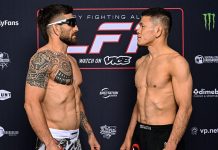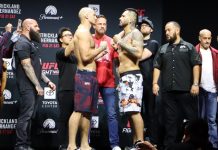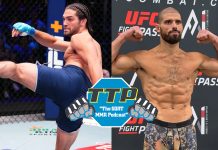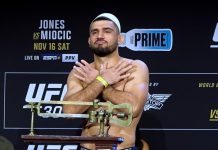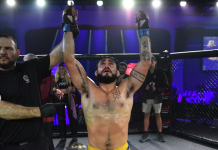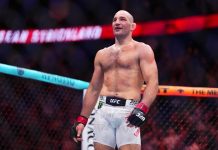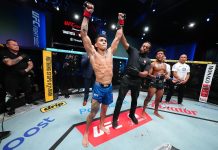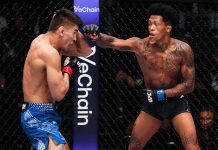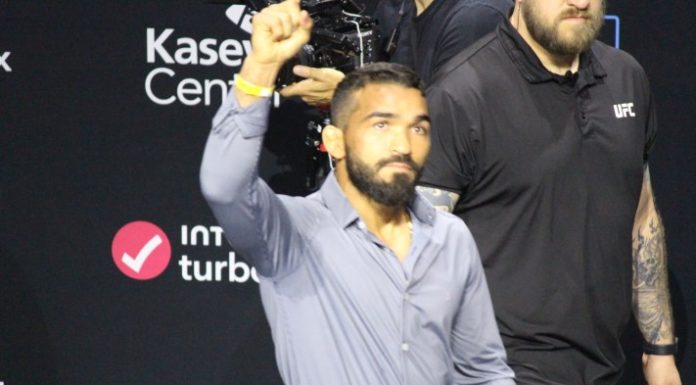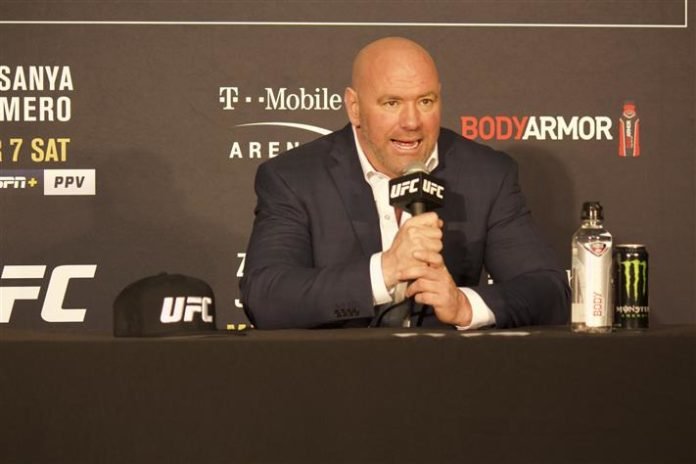
If UFC 249 and the promotion’s response to the coronavirus pandemic have taught us anything, it’s that the UFC will always be a controversial organization in the sports world.
The UFC’s current attempt to stage fights during a pandemic is the latest evidence that the promotion, always eager to be seen as professional, isn’t as professional as we thought.
When Dana White and the Fertitta brothers bought the UFC in 2001, they sought out government regulation in an attempt to make the sport of MMA more professional. Better yet, legal. Yet once legality was achieved, they did not stop there. Bringing in Reebok as the professional uniform sponsor, working with ESPN, and many more attempts to bring the sport to the mainstream were all massive moves the UFC has made over the years. Yes, money was a factor, but there was always that talk of making the sport “legit.” Mainstream. Professional.
However, the current global situation — a health crisis, no less — has shown the UFC’s colors.
When the Coronavirus pandemic hit Europe and then North America hard in early March, the UFC’s first response was… to do nothing. That was pretty much it. Planning to hold events as normal, following UFC 248 Dana White uttered the infamous quote during an interview with TSN’s Aaron Bronsteter, saying: “I don’t give a sh*t about the Coronavirus.”
Welcome to quotes that don’t age well. Still, White’s dismissive take on the virus was clearly the driving factor when the UFC attempted to push forward. A last-minute, forced change in plans saw the company look to hold events without a crowd, and they actually did so for one show in March. Holding UFC Brasilia at a venue with no spectators was at least better than trying to keep the doors open. But despite saying that precautions were taken, no athletes were officially tested at the event for the virus.
Following that event, the UFC had a plan to hold all events at the UFC Apex in Las Vegas. However, as the Nevada State Athletic Commission ruled that no combat sports could be held in the state, the promotion looked elsewhere. Searching out any states that would listen, they found none. So the UFC looked to Native American Reservations, as a way to skirt mass gathering bans and other restrictions. For a company that once desperately sought out regulation, the UFC was awful quick to run away from it in the midst of a pandemic.
While the rest of the sports world was on ice, the UFC was looking at staging fights at the Firelake Arena in Oklahoma City. However, following the CDC recommendation that no events be held with more than 10 people in a room, the UFC would postpone it’s next three shows following UFC Brasilia.
However, the UFC refused to officially cancel UFC 249, and honestly, it isn’t hard to understand why. Money makes the business world go round, and the main event was the long-awaited Khabib Nurmagovmedov versus Tony Ferguson grudge match. The pair had been scheduled to fight four times previously, with all falling through for everything from kidney failure to an ACL tear following Ferguson tripping over a cable cord.
Sadly but not exactly surprisingly, the bout would be scratched for a fifth time after champ Khabib wound up stuck in his home country of Russia due to travel sanctions. Once again, the biggest fight in MMA was off. However, the UFC was undeterred. They began a mad dash for not only a new main event but a new venue.
The UFC quickly found a dance partner for Tony Ferguson, that being the highly-ranked lightweight Justin Gaethje. Putting an interim title on the line and a guaranteed fight against Khabib somewhere down the line, getting both fighters to agree wasn’t very hard. The bigger issue was with finding a venue.
UFC 249 was originally scheduled to be held in New York, the United States’s epicenter for the coronavirus. Searching all over the country, and even outside the United States, the UFC settled on the Tachi Palace in California. The venue was officially on an Indian Reservation, so the California government technically had no say in the matter. Unveiling one of the best cards in MMA history, UFC 249 was officially a go for April 18th.
For a matter of days that is.
Only two days after the card and venue were released to the public, the event was canceled. At least this iteration of it. Reportedly the Governor of California, Gavin Newsom, put in a call to the top heads of Disney, demanding that the card be shut down. Disney owns ESPN, which is the UFC’s broadcast partner. Not long after, Dana White announced that the card was going to be canceled, and all other UFC cards were postponed indefinitely. However, being the man that he is, Dana White and the UFC weren’t going to be held down for long.
A couple of weeks following UFC 249’s cancellation, the show was given a second life. Albeit controversially, parts of the United States began to open up again. Georgia and Florida and other parts of the South made the first moves to return to normalcy. Florida even labeled professional sports as an essential business in early April, allowing WWE to run shows in the state during the entirety of the pandemic. The UFC then turned its sight towards Florida, and for the first time since the pandemic began, government regulation.
It’s no secret that Dana White and the current sitting President of the United States Donald Trump are friends. Having been a fan of the UFC for a long time, Trump even made history as the first-ever US President to attend a UFC event this past November at UFC 244. So when Donald Trump put Dana White as an advisor on the economic revival team it wasn’t a shock. It was, however, a sign that the federal government was on board with the UFC returning somewhat soon. It’s worth noting that the WWE’s Vince McMahon is also on the team, and the WWE has been running shows consistently this entire time, with just a handful taped in advance. With the federal government onboard, the UFC finally turned its sights towards state governments, and specifically, Florida.
On April 24, the UFC announced that UFC 249 was on for May 9th in Jacksonville, Florida. The card on paper is one of the best in the promotion’s entire history, with two title fights and a stacked undercard. This time the card is being regulated by an actual athletic commission, and taking place at full-fledged arena, that being the VyStar Veterans Memorial Arena. Fighters are allegedly going to be sent test kits prior to fight week, and then be tested during fight week to ensure safety for all the fighters involved. At least, that was allegedly the plan for the event when it was still set to transpire in April.
Beyond that, there will be fewer production workers than normal, and the promotion has been firm in saying all necessary precautions will be taken. Barring any last second complications, UFC 249 will be going down.
At long last after Indian reservations, islands being discussed (“Fight Island” appears to still be a thing), and the government getting involved, the UFC finally won. Rightly or wrongly, the promotion will likely be staging shows again. Their attempt to stage events during a pandemic was labeled foolish by some and heroic by others. However, if there is one thing that has been reaffirmed during this coronavirus situation, it’s that the UFC will always be a source of controversy in the sports world — and the lengths the promotion will go to in order to put on fights are limitless.

